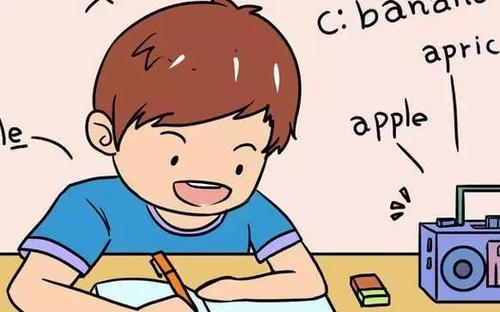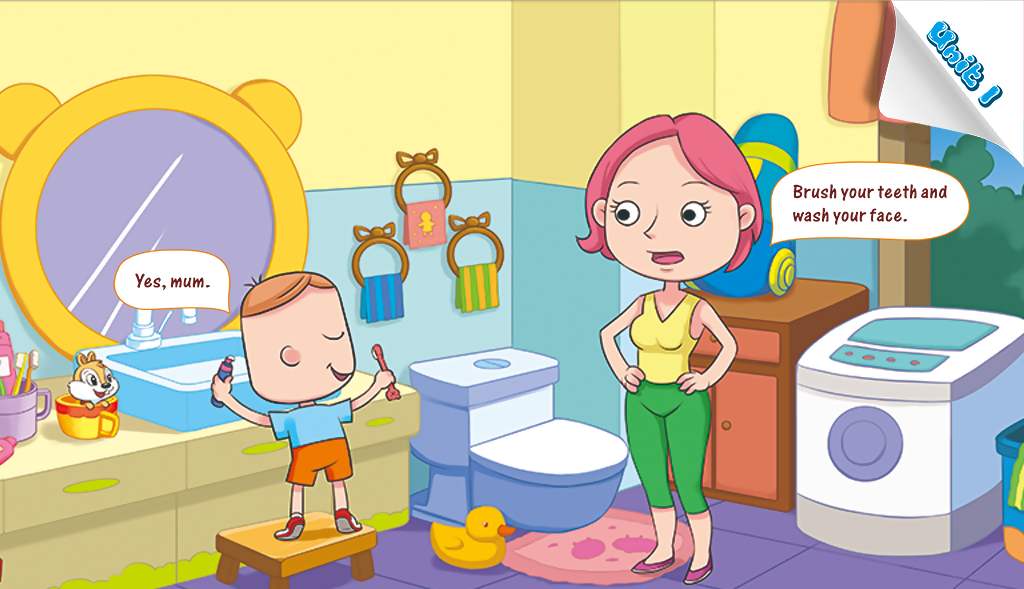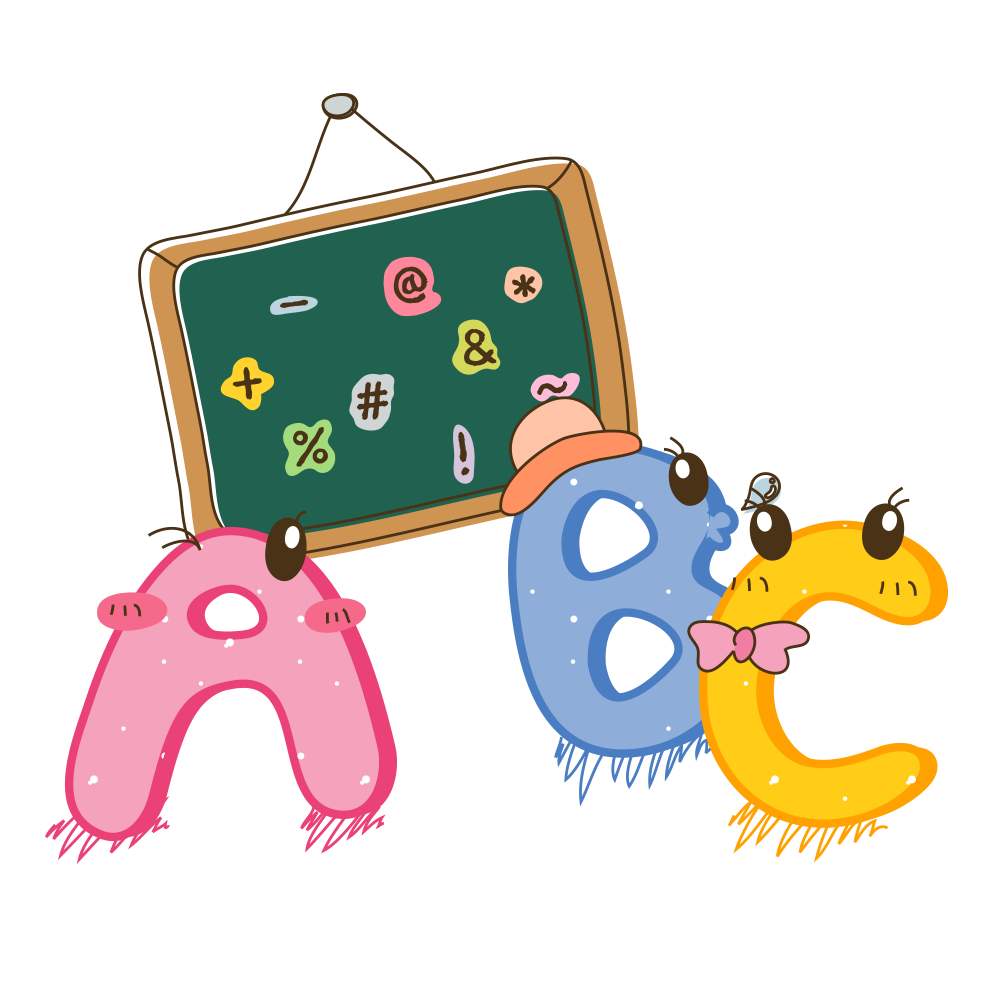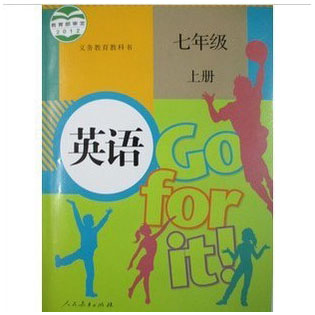九年级英语上学期期末试题
第一部分 听力部分
一、听力(共15小题,满分25分)
第一节:听小对话,从A、B、C三个选项中选出正确的选项,回答问题。(共5小题;每小题1分,满分5分)
1. What is Julia going to do?
A. Go camping. B. Do homework. C. Do housework.
2. Who did David visit Disneyland with?
A. His friends. B. His cousins. C. His parents.
3. Which wonder are the speakers talking about?
A. The Pyramid. B. The three Gorges Dam. C. The Giant’s Causeway.
4. Where are the speakers likely to go?
A. Somewhere hot. B. Somewhere cool. C. Somewhere dry.
5. How long is the river?
A. 6760 kilometres long. B. 6670 kilometres long. C.6607 kilometres long.
第二节:听较长对话,从A、B、C三个选项中选出正确的选项,回答问题。(共5小题;每小题2分,满分10分)
听下面一段较长对话,回答第6、7两个小题。
6. How will they travel?
A. By plane and by train. B. By plane and by bus. C. By train and by bus.
7. How much will the trip cost per person?
A. About$1,000. B. About$900. C. About$800.
听下面一段较长对话,回答第8~10三个问题。
8. When did the man come back home?
A. On Saturday. B. On Friday. C. On Wednesday.
9. Which place was mentioned in the dialogue?
A. London Eye. B. Tower of London. C. Buckingham Palace.
10. What can you know from the dialogue?
A. The woman liked staying at home.
B. The man liked the boat tour most.
C. The man’s parents liked paintings.
第三节: 听下面一段独白,从A、B、C三个选项中选出正确的选项,回答问题。(共5小题;每小题2分,满分10分)
11. When will the tourists have breakfast?
A. At a quarter to seven. B. At half past seven. C. At seven fifteen.
12. How will the tourists go to Mount Tai?
A. By train. B. By bus. C. By bike.
13. What do the tourists need to show when they have lunch?
A. A blue card. B. A blue ticket. C. A blue key.
14. What season is it now?
A. Spring. B. Summer. C. Autumn.
15. Why do the tourists need to bring a jacket?
A. To keep warm. B. To keep safe. C. To look cool.
第二部分 笔试部分
二、完形填空(共15小题;每小题1分;满分15分)
阅读下面短文,掌握大意,从每题所给的A、B、C、D四个选项中选出最佳选项。
I was feeling a little blue because my mother had lost her job.
One day, while I was 16 on the street, I heard piano music and singing rising above the noise of the people. I walked more slowly to 17 where it was coming from. Then I saw a young lady sitting at a piano.
She was singing songs about love, 18 yourself and keeping on trying. The way she was singing made me a little comfortable. I stood there 19 , watching her playing on such a crowded New York square. I thought that she must be 20 enough to perform in front of so many people.
She noticed me. I walked over and told her how good her 21 sounded. “Thank you.” she said.
“I have been going through a hard time recently, 22 you’ve made me hopeful again.” I said to her.
“I’m glad that I could help,” she replied. “Why are you so 23 ?”
“Well, my mum has lost her job, and I’m not so sure what to do... ”
“Did you notice the 24 you were walking? Your head was down.” she said. “Don’t be upset, because 25 comes in different ways and if your head is down, you might not see it. You should 26 more. Lift your head up. ”
I looked 27 her, amazed at how she was encouraging me. “ 28 are you playing the piano here?” I asked her with a smile.
She 29 that she saw a lot of unhappy people in the world and she tried to cheer 30 up by playing music.
I smiled a little wider, realizing that no difficulties could stop me from going on.
16. A. driving B. riding C. running D. walking
17. A. find out B. send out C. take out D. get out
18. A. dressing B. believing C. hurting D. losing
19. A. nervously B. rudely C. angrily D. quietly
20. A. brave B. shy C. bored D. honest
21. A. advice B. idea C. music D. interest
22. A. or B. but C. so D. and
23. A. dirty B. busy C. sad D. lazy
24. A. way B. time C. reason D. station
25. A. chance B. health C. pain D. life
26. A. complain B. rest C. smile D. pay
27. A. like B. after C. for D. at
28. A. How B. Why C. When D. Where
29. A. dreamed B. hoped C. guessed D. explained
30. A. us B. them C. me D. her
三、阅读理解(共15小题;每小题2分,满分30分)
阅读下面四篇短文,从每题所给的A、B、C、D四个选项中选出最佳选项。
A
The Smallest Life Around Us
Tiny plants and animals live all around us. We cannot see them because they are so small, but they are everywhere.
They live in the soil, the air, and in rivers and oceans. They grow on mountains and in caves. Some live in the ice at the north and south poles; some live where it is very hot. They are found throughout cities and in the country. They grow on other plants and animals. Some are even living on you, on your skin, hair, and inside your body, in your mouth, nose, and all through your intestines(肠).
These tiny plants and animals are called microbes. The word microbe is made from two other words: micro, meaning small, and bios, meaning life. So, microbe means small life.
Microbes have been on earth for a very long time. They may have been the first forms of life to be alive. Today there are more microbes in the world than all other living things.
People did not know microbes had existed(存在) long. They were too small for them to see.
But people did see many changes in their world—important changes. And they did not know what caused them. They saw food that they kept too long change color and begin to smell bad. They saw cuts and wounds grow red and painful and become infected(感染). They saw old plants and leaves and trees crumble apart on the forest floor and disappear into the soil. Such changes were a natural part of the world, but people did not understand them. They did not know these changes were evidence(证据) of tiny plants and animals growing all around them.
31. Why couldn’t people see microbes?
A. Because they are too small.
B. Because they live inside our body.
C. Because they live far from humans.
D. Because they may have been the first forms of life to be alive.
32. The underlined phrase “crumble apart” in the last paragraph means “______”.
A. grow taller B. change into soil
C. break into tiny pieces D. become colourful and energetic
33. Choose the answer that completes the web below.
A. Microbes are very small B. Food begins to smell bad
C. People can’t see microbes D. Microbes are all around us
B
The place of the family computer may turn into a hot argue as your children get older. Whether you have one computer in the house or five, you should think the following things as you make a final decision.
There is a certain number of danger if you allow your children to have a computer with Internet in their rooms with no pa¬rental direction. They may share improper information and chat with strangers if they know that no one will be watching.
This does not mean that you cannot allow your children to have a computer in their rooms. Think allowing a computer without Internet. This is especially useful for teens who use the computer for creative projects, playing video games and listening to music. Keep in mind, however, that it is possible that your kids are more skilled at computers than you are and may re¬move any blocks you have in place.
Computer Use
The way your family computers are used will play a role in deciding where they should be placed. A machine used only for homework will need to be in a quiet place where there is low traffic. One used for chatting online can be in the room where most of the family spend their time. If Mom and Dad use a computer for work, those needs will also have to be thought.
Space
Space must also be considered in computer placement. The computer will need electricity, plenty of desk space and a spot away from this bright light of windows. You will not want it placed in a room where your kids may be noisy.
34. The text is written for__________.
A. parents B. teachers C. students D. children
35. Which of the following might be a danger to children?
A. Listening to music. B. Doing their homework.
C. Playing video games. D. Chatting with strangers.
36. Which word can be put in the blank ?
A. Safety. B. Difficulty. C. Friendship. D. Attention
37. What can we learn from the text?
A. A computer takes up a lot of desk space.
B. A child should not be allowed to get online.
C. A child should not be allowed to use a computer.
D. Many things decide the place of family computers.
C
①Supermarkets only sell food before its “sell-by” date. So where does food past its “sell-by” date go? The answer is in the trash bin. Besides shops, people also cast away a lot of food when they buy too much and can’t eat it up. To stop food waste, people have come up with great ideas. Take a look and try to join the action!
②Set up food banks. When we have extra money, we save it in banks. This idea made people think. Could they set up “banks” for food? The world’s first food bank started in the US in 1967. Many other countries, including China, have caught up with this great idea. For example, Shanghai has recently made a “share fridge”. It stores cakes and canned food donated (捐赠) from nearby markets and restaurants. It’s free for anyone to enjoy.
③Pay as you feel. The Real Junk Food Project is a company in the UK. It says that food past its “sell-by” date could still be OK to eat. So they collect it from supermarkets, and put it on shelves (货架) in special cafes. There, the food has no price label (标签). You can give as much money as you want. If you don’t want to spend money, you can help do some work there. There are now 125 Real Junk Food cafes worldwide. And the number is growing quickly.
④Buy less. When there’s no food bank around, what can we do to help stop food waste? In two words: Buy less. Dining halls in more than half of US colleges are going tray-less (无托盘). It makes it harder for students to take too much. This small change brings a big difference. It reduces food waste by 25 to 30 percent, and saves water and energy because there are no trays to wash.
38. The underlined words “cast away” in Paragraph 1 probably means _____.
A. throw away B. take away C. give away D. put away
39. Which of the following is true according to the article?
A. People need to pay for food from “share fridge”.
B. Dining without trays helps to reduce food waste and save water.
C. Fifty percent of American restaurants are going tray-less.
D. The food in the Real Junk Food Project is free for anyone.
40. How does the writer organize the writing?
A. B. C. D.
41. What’s the main purpose of the writing?
A. To show how important the food bank is.
B. To introduce some ways of stopping food waste.
C. To ask people to buy food past its “sell-by” date.
D. To discuss where the food past its “sell-by” date goes.
D
It happened two years ago. It was Mother’s Day morning. I was doing my shopping at our local supermarket with my five-year-old son, Tenyson. As we were leaving, we found that only minutes earlier an elderly woman had fallen over at the entrance and had hit her head on the ground. Her husband was with her, but there was blood everywhere and the woman was embarrassed(尴尬的) and clearly in shock. Walking towards the scene, Tenyson became very sad about what had happened to the couple. He said to me, “Mum, it’s not much fun falling over in front of everyone.”
At the front of the supermarket a charity group had set up a stand selling fish and chips and flowers to raise funds. Tenyson suggested that we should buy the lady a flower. “It will make her feel better,” he said. I was amazed that he’d come up with such a sweet idea. So we went over to the flower seller and asked her if we could buy a flower for the lady to cheer her up. “Just take it,” she replied. “I can’t take your money for such a wonderful gesture(姿势).”
By now paramedics(救援人员)had arrived, and were attending the injured woman. As we walked up to her, my son became intimidated by all the blood and medical equipment(器具). He said he was just too scared to go up to her.
Instead I gave the flower to the woman’s husband and told him, “My son was very sad for your wife and wanted to give her this flower to make her feel better.”
At that, the old man started crying and said, “Thank you so much. You have a wonderful son. Happy Mother’s Day to you.”
The man then bent down and gave his wife the flower, telling her who it was from. Though badly hurt and shaken, the old lady looked up at Tenyson with love in her eyes and gave him a little smile.
42. What does the writer want to tell us?
A. One can never be too careful. B. Actions speak louder than words.
C. Love begins with a little smile. D. A small act of kindness brings a great joy.
43. Which of the following is TRUE according to the passage?
A. The elderly woman was knocked down by Tenyson.
B. The elderly woman was moved to tears by Tenyson’s gesture.
C. Tenyson’s care for the elderly woman surprised the flower seller.
D. Tenyson’s mother supported his idea of buying a flower for the woman.
44. Choose the right order of the events given in the story. _________
a. The paramedics arrived and attended the injured woman.
b. We bought a flower for the lady to cheer her up.
c. I did some shopping at our local supermarket with my five-year-old son.
d. My son became very sad about what had happened to the couple.
e. An elderly woman fell over at the entrance.
A. c, e, a, b, d B. a, c, e, d, b C. c, e, d, b, a D. c, a, e, d, b
45. What would be the best title for the passage?
A. Mother’s Day B. The Power of Flower
C. An Accidental Injury D. An Embarrassing Moment
卷Ⅱ
说明:本卷共有四大题,31小题,满分50分。请用黑色字迹钢笔或签字笔将答案写在答题纸的相应位置上。
四、词汇运用(共15小题;每小题1 分,满分15分)
A.用方框中所给单词或词语的适当形式填空,每词限用一次。
据短文内容和所给中文提示,在空白处写出单词的正确形式。每空限填一词。
hope, step proper on one’s own twenty
46. Since no one could lend a hand, he did it .
47. We have called Ba Jin the greatest artist of the century.
48. If we do nothing for the environment, the future will be .
49. Mary does a little badly in math and she wishes to take to improve it.
50. Everyone should learn to behave in public places like libraries and cinemas.
B. 根据短文内容和所给汉语提示,在空白处填入单词的正确形式。每空限填一词。
People who speak or perform before the public sometimes may suffer from “Stage Fright” (怯场). Stage fright makes a person nervous. In that case it can make one's mind go back and forget what one should say or to act. Actors, dancers, lawyers, even radio show hosts 51 (经受)from stage fright at one time or another.
Diana Nichols is an expert in helping people free from stage fright at a medical center in New York City. She helps actors learn to 52 (控制、操控) themselves. Miss Nichols says some people have always been afraid to perform before the audience. Others, she says, develop stage fright 53 (在---后)a sad experience.
She offers them ways to control the 54 (害怕). One way is to smile before going onto the stage. Taking two deep breaths 55 (也) helps. Deep breathing helps you get control of your body.
Miss Nichols advises her patients to tell themselves that their 56 (演讲)or performance does not have to be perfect. It’s all right to make a mistake. She tells them they should not be too nervous while they are performing. It is important that they should 57 (继续)to perform while she is helping them. After each performance, they 58 (讨论)what happened and find out what helped and what did not. The more they perform , the 59 (更少) they will fear. Miss Nichols says the aim is only to 60 (减少)stage fright, not to smooth it away completely. This is because a little stage fright makes a person more careful, and improves the performance.
五、语法填空(共10小题;每小题1分,满分10分)
阅读下面短文,按照句子结构的语法性和上下文的连贯性,在空格处填入一个恰当的词或者使用括号中词语的正确形式填空。
In one’s life, one usually has little understanding of oneself. When you succeed, you may be very proud. When you 61 , you may lose heart. If you don’t get a thorough understanding of yourself, you may miss lots of 62 (chance) in life.
To get a thorough understanding of yourself is to know well 63 yourself. You may know your strong points and weak 64 (one). You may hope for a wonderful future, but be sure not to expect too much because not all dreams can 65 (realize). You may be confident enough to meet challenges, but first you should know what to do.
To get a thorough understanding of yourself, you should have a real sense of self-appreciation. Maybe you think you are not a tall tree 66 just small grass, as long as you get full confidence, you are sure to face any trouble.
To get a thorough understanding of yourself also 67 (need) to look after yourself. When you are angry, find a quiet place so that you won’t be hurt. When you are sad, tell your friends about it 68 (change) the mood into a good one. When you are tired, get a good sleep. If you don’t take good care of yourself, you won’t be able to stay away from 69 (ill).
So if you get a thorough understanding of yourself, you 70 (get) a full control of yourself and find your life full of color.
六、任务型阅读(本题有5小题;每小题1分,共计5分)
为了给学生增加心理交流的渠道,学校开设了心理辅导室,并推出晚间专项心理咨询活动。阅读该活动海报,请为以下4位同学向心理咨询师预定合适的咨询时间,并完成第75小题。
Heart-to-Heart Talk
Do you have any problems? Come and talk with us!
Opening hours: 17:00 o’clock---18:00 o’clock
Time Themes
Monday Problems with studies
Tuesday Problems with families
Wednesday Problems with friends
Thursday Problems with teachers
Friday Problems with self-image
(Tel: 88657637)
Students Problems Appointment Time
Jerry I’m angry with my friend Marcus. He lied to me last week. 71.
Paula My teacher Ms. Dervish never praises me. I don’t think she likes me. 72.
Alfred I think I’m fatter than any other boy in my class. I’m worried. 73.
Candy I like Chinese and I work hard at it. But my Chinese is still not good enough. I’m confused. 74.
75. In which part of a magazine can you most probably read this passage?
A. News. B. Review. C. Fashion. D. Health.
七、书面表达(共1小题;满分20分)
假如你是曾洁,你最大的爱好就是做饭。你的美国笔友Tom发邮件询问你喜欢做饭的理由,请你根据下面的提示给他回一封邮件。
Reasons why I like cooking
1. a hobby learn a life skill, enjoy delicious food
2. a way to show my love to my parents help my parents
3.a kind of relaxation Try new dishes, feel proud
--- ---
要求:1. 包含上述要点,可适当扩展;
2. 词数:100词左右。信件开头和结尾已给出,不计入总词数。短文首句仅供选择使用,不计入总数。 短文首句:You asked me why I liked cooking. Here are my reasons.
Dear Tom,
_____________________________________________________________________________________________________________________________________________________________________________________________________________________________________________
Yours,
Zeng Jie
英语试卷
听力材料与参考答案
I.听力材料
第一节
听下面5段小对话。每段对话后有一个小题,请从题中所给的A、B、C三个选项中选出最佳选项,并标在试卷的相应位置。
1. M: Can you go camping with us, Julia?
W: I’m afraid not. I have some housework to do.
2. W: Hi, David. Long time no see. Did you go anywhere interesting this summer vacation?
M: Yes, I visited Disneyland with my cousins.
3. M: Have you ever visited the three Gorges Dam?
W: Yes, I visited it two years ago. It produces electricity for millions of people in China.
4. W: Why not visit somewhere not too hot on vacation this summer?
M: That’s a good idea. I hope we can go as soon as possible.
5. W: Which is the longest river in the world?
M: It’s the Nile, about 6670 kilometres long.
第二节
听下面一段较长的对话,回答第6~7两个小题。
M: Hello, Golden Times Travel Agency. Can I help you?
W: I’d like some information about trips to Seattle.
M: What would you like to know?
W: Well, how do we travel?
M: We’ll go there by plane. After arriving in Seattle, we’ll travel by bus.
W: How long does it take to go there and come back?
M: Well, it depends. We have five-day trips in spring and autumn, ten-day trips in summer.
W: I’m interested in the five-day trips next spring. Can you tell me how much that’ll cost?
M: Um, something like 800 dollars per person.
W: I see. Thank you.
听下面一段较长的对话,回答第8~10三个小题。
W: So, how was your vacation? You went to London, didn’t you?
M: Yeah, with my parents. We just got back on Saturday. It was wonderful!
W: What sights did you visit?
M: Well, we saw all the most famous places, Big Ben…London Eye…They were so interesting.
W: Did you take any tours?
M: Just one — a boat tour on the Thames.
W: Wow! That sounds wonderful.
M: Yeah. It was a great way to see the city.
W: Did you go to any of the famous art museums?
M: Yeah. My parents love art, so they spent hours in the museums. But for me, it was pretty boring. I’m just not very interested in paintings.
W: So what else did you do?
M: Well, I guess my favourite thing to do was just to sit in the park and watch the people. It was really relaxing.
W: It sounds like a great vacation to me.
M: Oh, it was. But it’s good to be home.
第三节
听下面一段独白。独白后有5个小题。请从题中所给的A、B、C三个选项中选出最佳选项,并标在试卷的相应位置。
Hello, everyone! Here’s some information about our trip to Mount Tai tomorrow. We’ll have a long way to go, so we’ll have to get up early tomorrow morning. We will have breakfast at a quarter past seven in the hotel. Don’t be late, please, as the bus has to leave at eight. When you finish your breakfast, please go to the parking lot. There we’ll get on the bus. The parking lot is just behind the hotel. We’ll have lunch at a restaurant near Mount Tai and please go to the office in the restaurant to get a blue ticket first. You need to show it when you have lunch. Oh, one more thing, though it is July and it’s so hot here in the daytime, it can get quite cold in the mountains, so remember to bring a jacket with you. You’ll need one in the evening. That’s all, and see you tomorrow morning.
Ⅱ.参考答案
一、 听力(1~5题每小题1分,6~15题每小题2分。选错答案、多选或不选一律不给分)
1-5.CBBBB 6-10.BCAAC 11-15.CBBBA
二、完型填空 (每小题1分。选错答案、多选或不选一律不给分)
16-20. DA BDA 21-25. CBCAA 26-30. CDB D B
三、阅读理解 (每小题2分。选错答案、多选或不选一律不给分)
31-33. ACB 34-37. ADAD 38-41. ABCB 42—45. DDCB
四、词汇运用 (每小题1分。写错答案一律不给分,首字母大小写错误扣0.5分)
46-50. on his own twentieth hopeless steps properly
51-55. suffered control after fear also
56-60. speech continue discuss less reduce
五、语法填空 (每小题1分。写错答案一律不给分,首字母大小写错误扣0.5分)
61-65. fail chances about/ of ones be realized
66-70.but needs to change illness will get
六、任务型阅读 (每小题1分。)
71-75. Wednesday Thursday Friday Monday D
七、书面表达(20分)
76. Possible version:
Dear Tom,
You asked me why I liked cooking. Here are my reasons.
First, cooking is one of my hobbies. By learning this basic life skill, I can enjoy different kinds of delicious food. Besides, it’s a good way to show my love to my parents. Both my parents are very busy. So when I come back home early, I’ll cook for them. After they return, we sit together and enjoy the meal with their big smiles on the faces. What’s more, it’s a kind of relaxation. I always try to cook different dishes. When my new dish is enjoyed by others, I feel proud. To be honest, I’ve got a lot of fun from cooking. (103)
Do you like cooking? Look forward to your reply.
Yours,
Zeng Jie



